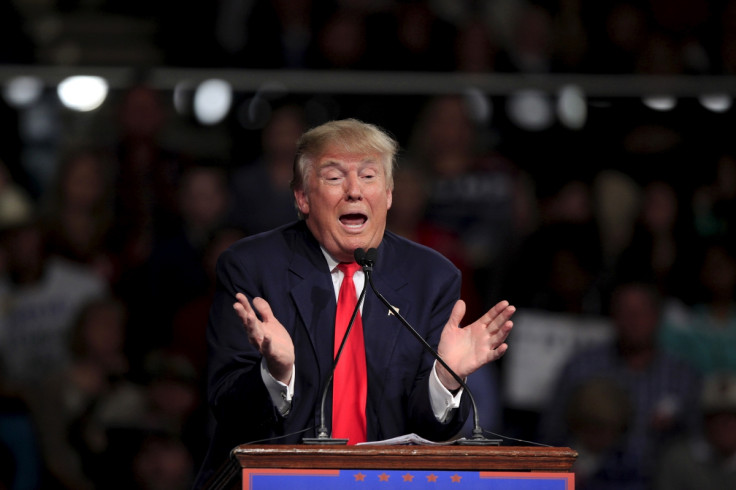Donald Trump: Can the bombastic billionaire really clinch the Republican nomination?

With the US primary election season in full swing, candidates on both sides of the aisles are looking to earn enough delegates to secure their party's nomination. A very likely win in South Carolina for GOP frontrunner Donald Trump could propel him to an early lead, in turn possibly giving him the momentum needed to grab his party's nomination.
For Republicans, the race continues to be hotly contested as five candidates vie for the GOP nomination. In an unlikely scenario, Trump — the former reality TV star and billionaire developer — has grabbed voters' attention and their support. Although he lost the Iowa Caucus to Texas Senator Ted Cruz, he readily won in New Hampshire and is projected to win South Carolina on Saturday.
Ryan Enos, a political psychologist at Harvard University, spoke to IBTimes UK about the 2016 presidential election and the effect public opinion and the media have on candidates during the primary and caucus season.
Enos said it is "hard to know" whether voters will tire of Trump's continued attacks on minorities and seemingly outlandish proposals. According to the Harvard professor, there are three schools of thought regarding Trump's continued dominance in the GOP.
The first looks at the real estate mogul's poll numbers, which have monopolised the top spot since he announced his candidacy. Two of the last three polls have had Trump leading the Republican candidates by a margin of two-to-one.
The Fox News poll, released on 18 February, has Trump ahead of Cruz by 17 points, 36% to 19%. Likewise, a CBS News poll also shows Trump leading Cruz by 17 points, 35% to 18%. Only one poll, released by NBC News and the Wall Street Journal, has Trump trailing Cruz by two points, 26% to Cruz's 28%.
"He [Trump] has been enough of a presence in the news by now that it's not like people are just trying to figure out who he is," Enos explained. "One school of thought is when people really have to start paying attention, they figure out who somebody is and their decisions will change. But that's probably less true for Trump because he's a fairly known commodity at this point, especially now more so than he was six months ago or even a year ago." Enos added that under this school of thought, Trump would be poised to do well in the polls.
Enos, however, highlighted that there were two other schools of thought. One looks at how candidates who do not have the support of the party's mainstream have a harder time winning primary elections. According to this view, Enos said, Republicans will realise Trump is outside of the GOP mould and they will keep him out. There have already been signs of the Republican establishment aiming to drum up support for other candidates, particularly Florida senator Marco Rubio.
Another view looks at what Enos described as "low information" voters, or voters who often are not very knowledgable or interested about politics. "It could be the case, that even though he does well in polling numbers, moving forward, the people who say that they support him are not going to be the people who turn out and vote in elections," he said.
Discussing Trump's comments directed at Mexican immigrants, such as when he said: "When Mexico sends its people, they're not sending their best....They're sending people that have lots of problems, and they're bringing those problems with us." Enos noted that the Republican Party as a whole has a problem among Latino voters regardless of what their frontrunner says. He said Latino voters are no longer up for grabs between the two parties like they were perhaps when George W Bush was running, but Trump may be counting on that lack of Latino support to drum it up from other voters.
Or as Trump's Twitter page suggests, the billionaire candidate is counting on everyone to vote for him, regardless of what he says.
© Copyright IBTimes 2025. All rights reserved.






















